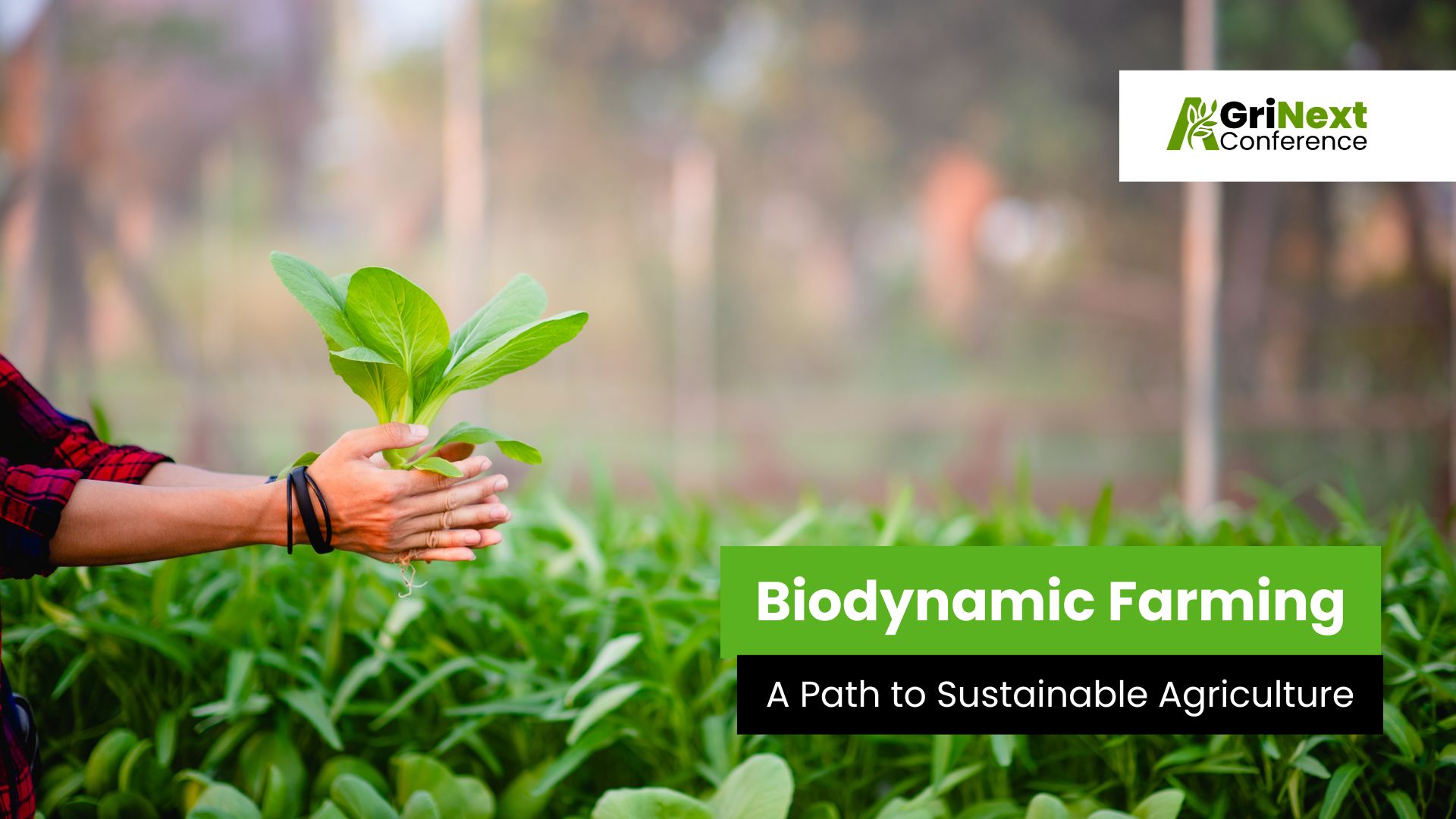
Why Biodynamic Farming Matters Today
In an era dominated by industrial farming and synthetic chemicals, biodynamic farming is emerging as a sustainable alternative that enhances soil health, biodiversity, and ecological balance. This holistic approach not only produces nutritious food but also nurtures the environment, ensuring long-term agricultural resilience.
More Than Organic: The Philosophy Behind Biodynamic Farming
Developed by Rudolf Steiner in 1924, biodynamic farming goes beyond organic agriculture by incorporating spiritual, ecological, and ethical dimensions. It treats the farm as a self-sustaining ecosystem, where crops, animals, and the land interact symbiotically.
Unlike conventional farming, which often relies on external inputs, biodynamic farming emphasizes closed-loop sustainability, relying on natural cycles and self-generated fertility.
Biodynamic farming is more than just a set of agricultural techniques—it is a philosophy that sees the farm as a living organism. It integrates the land, plants, animals, farmers, and even cosmic influences into a unified, balanced system. Biodynamic farmers work to harmonize these elements, fostering a self-sustaining environment where every component supports the vitality of the whole farm.
At its core, biodynamic farming views the land as a living, breathing entity, composed of fields, forests, soil, plants, animals, and people—all interdependent. Practitioners carefully observe and respond to the land’s needs, allowing the farm to evolve naturally. This approach nurtures soil health, promotes biodiversity, and builds resilience against pests and climate change.
A Living Farm Ecosystem: Closing the Loop Naturally
Unlike conventional farms that rely on synthetic fertilizers, biodynamic farms create their own fertility through composting, animal integration, and cover cropping. Composting transforms organic waste into nutrient-rich soil amendments, while livestock manure enriches the soil naturally. Cover cropping and crop rotation prevent soil depletion and enhance nutrient cycling, eliminating dependence on external fertilizers and ensuring long-term soil health.
Celebrating Biodiversity: Local Seeds and Heritage Breeds
Biodynamic farmers prioritize open-pollinated heirloom seeds and heritage animal breeds, selecting those best suited to their farm’s environment. By cultivating seeds and animals adapted to local conditions, they enhance biodiversity, improve nutritional quality, and reduce dependence on genetically modified or hybrid varieties.
Nature and Cosmos: Unique Practices in Biodynamic Farming
A defining aspect of biodynamic farming is the use of special composts and sprays made from herbs like yarrow, chamomile, and dandelion, minerals such as silica and quartz, and fermented animal manure. These preparations stimulate soil microbiology, enhance plant vitality, and strengthen resilience against environmental stressors. Additionally, biodynamic farmers align planting, harvesting, and soil preparation with lunar and planetary cycles, believing that celestial movements influence plant growth. This practice, inspired by traditional farming wisdom, aims to optimize yield and quality naturally.
Pest Control the Natural Way: Harmony Over Chemicals
Biodynamic farms also mimic natural ecosystems, supporting diverse plant and animal life. Instead of synthetic pesticides, they rely on companion planting to deter pests naturally, beneficial insects and natural predators for biological control, and soil health management to prevent disease outbreaks. By fostering natural balance, biodynamic farms reduce pests and diseases without harming the environment. Upholding agricultural integrity, biodynamic farms can obtain Demeter certification, the world’s only official biodynamic certification established in 1928.
Demeter: Setting the Global Standard for Biodynamic Integrity
Demeter-certified farms must integrate crops and livestock, minimize external inputs, apply biodynamic preparations regularly, dedicate a portion of land to biodiversity conservation, and uphold principles of social and environmental responsibility. This certification assures consumers that products meet the highest standards of sustainable farming.
From Germany to India: Global Reach of Biodynamic Farming
Biodynamic farming is practiced worldwide, with Germany leading the movement through its Demeter-certified farms known for high-quality organic food and environmental stewardship. In India, biodynamic farming is gaining traction in regions like Ooty, Uttar Pradesh, Uttarakhand, and the North-Eastern Hills, where farmers utilize herbal preparations, composting techniques, and natural fertilizers to enhance soil fertility and crop resilience.
Challenges Today, Promise Tomorrow
Despite its benefits, biodynamic farming faces challenges such as lower initial yields compared to conventional farming, higher production costs due to labor-intensive practices, and limited market access for biodynamic products. However, growing consumer demand for sustainable, chemical-free food is driving expansion. With increased government support, scientific research, and awareness, biodynamic farming could become a mainstream agricultural model.
Guided by Visionaries: Coleman, Thun, and the Future of Farming
Eliot Coleman,a strong advocate for small-scale, biologically focused farming, emphasizes the importance of soil health, while Maria Thun is known for her research on biodynamic planting calendars and their influence on crop growth. Their insights highlight the significance of biodynamics in sustainable agriculture. By fostering fertility, embracing biodiversity, and working in harmony with natural cycles, biodynamic farming reduces environmental impact while producing high-quality food. This integrated approach nurtures the land and supports healthy communities and ecosystems. As global interest in sustainable farming grows, biodynamics provides a pathway towards a more harmonious and resilient future for agriculture.
AgriNext 2025: Championing Regenerative and Biodynamic Agriculture
With its emphasis on closed-loop sustainability, ecological balance, and farm integrity, biodynamic farming resonates strongly with the goals of AgriNext 2025. As the event explores next-generation agricultural solutions, biodynamics offers a compelling model of resilience rooted in both science and nature.
References
Rudolf Steiner and the Foundation of Biodynamic Farming
Demeter International – Biodynamic certification standards.
Core Principles of Biodynamic Farming
Signup For AgriNext Conference Newsletter

